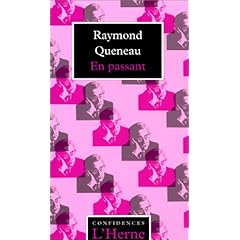Being a makeup junkie does present a few problems of space in the bedroom and bathroom. While most girls would maybe have one travel box of makeup that holds everything they could ever need while still being of a goodly size, I manage to not only fill a box of this type to overflowing, but also fill another, larger box solely with eyeshadows, a bag the size of an average handbag, and two-thirds of a bathroom cabinet, as well as a box on wheels under the bed and scattering various items around the flat. And this still doesn't stop me from coveting more. I probably have enough makeup, perfume, soaps, skincare and various other toiletries to open my own branch of Boots.
It's perhaps evident from this, then, that storage solutions are not my forté. If you have just one obsession, it's probably permissible. However, I have two. My second love, equal to or greater than the first in its magnitude, is books (as perhaps evidenced by this blog's very existence). Practically ever since my foetal state (as my mother will attest), books have decorated my dwelling at every turn, with me frequently having more than one on the go at once. One of my favourite things to do in my childhood home was to wedge myself into the corner where the radiator meets the sofa in the downstairs living room and read contentedly for hours in winter, while the radiator warmed my back. My mother has several anecdotes about my life as an obsessive reader, including my ability to carry a stacked book box at the age of two and follow her around with it, and her own acquired ability to read a book to me and continue a conversation with an adult simultaneously.
This inevitably resulted in the continued acquisition of books. The inability to get rid of them was not just my fault, by the way, due to my mother's intention to apparently preserve the house as some sort of macabre museum of our childhoods (meaning that several of my baby books are still in the loft awaiting the birth of my as yet fictitious babies). Some teenage kicks, such as the Babysitters' Club series, did get shown the door. But there are so many books that I have bought over the years that I just cannot bring myself to chuck. They are books that I have loved so much that I want to reread them over and over, or books that I am still yet to read.
This, in my parents' suitably vast detached house, was never a problem; there was certainly no lack of bookshelves. However, I then moved out, firstly into a tiny studio flat shared with my boyfriend that he had not rented with a flatmate in mind (the story of the move is an adventure in itself - I turned up with a tiny suitcase that, given various other essentials that I needed for work such as clothes, only had room for one or two books at most), and secondly into a larger flat that was actually meant for more than one person (then subsequently into a third flat when the second one turned out to be unfit to live in. Joy). None of these properties were (or are) as ample as the previous space in which I was lucky enough to be able to house my books. Initially this was not problematic, as many of my books were still with my parents, and my boyfriend-turned-fiancé and I joined our local library.
In April 2009, when we'd been in our current flat for just under a month, my parents decided to embark on some sort of epic road trip with the majority of my stuff that still remained in the UK six months after I had moved overseas. Prior to this, my mother and I spent an hour or two on the phone with her reading out titles of every book I owned that was on the bookshelves there, and me instructing her to either bring them, keep them but don't bring them this time, or to sell them. Only a few (worringly or reassuringly) fell into this latter category. This meant that when they showed up with a carfull of stuff, several boxes of books had to be hauled up forty-seven stairs and then rehomed. This entailed buying another bookshelf, me taking over three-quarters of it and then stacking books into it three rows deep. I'm convinced that it is these rows of literary heaviness (both of the high and lowbrow varieties; we're talking physical weight here) that are the cause of the worrying creaking noise that we sometimes hear coming from the ceiling of our office/spare room immediately below.
This is the result of only half of my book collection being brought over (two-thirds if I'm in a state of denial). The growing numbers of books here are exacerbated by a couple of factors. One: I anticipate it becoming more difficult over the years to shed books that I have already read due to a severe lack of charity shops in the country where I now live. And two: every month the American Library (not the library that we are members of, I might add) holds an open-to-all booksale of its old and duplicate stock. We attend most months; I'm not sure that my fiancé has ever bought anything there, so any additions to the bookly menagerie are quite staunchly my fault.
I have always dreamt, and continue to dream, of someday having my own mini-library in the property where I live, but until it happens, I'm faced with the space-induced paradox encountered by many booklovers: the best way to show that you love books is not to buy them but, rather, to join your local library.
First three Chapters....
16 years ago







